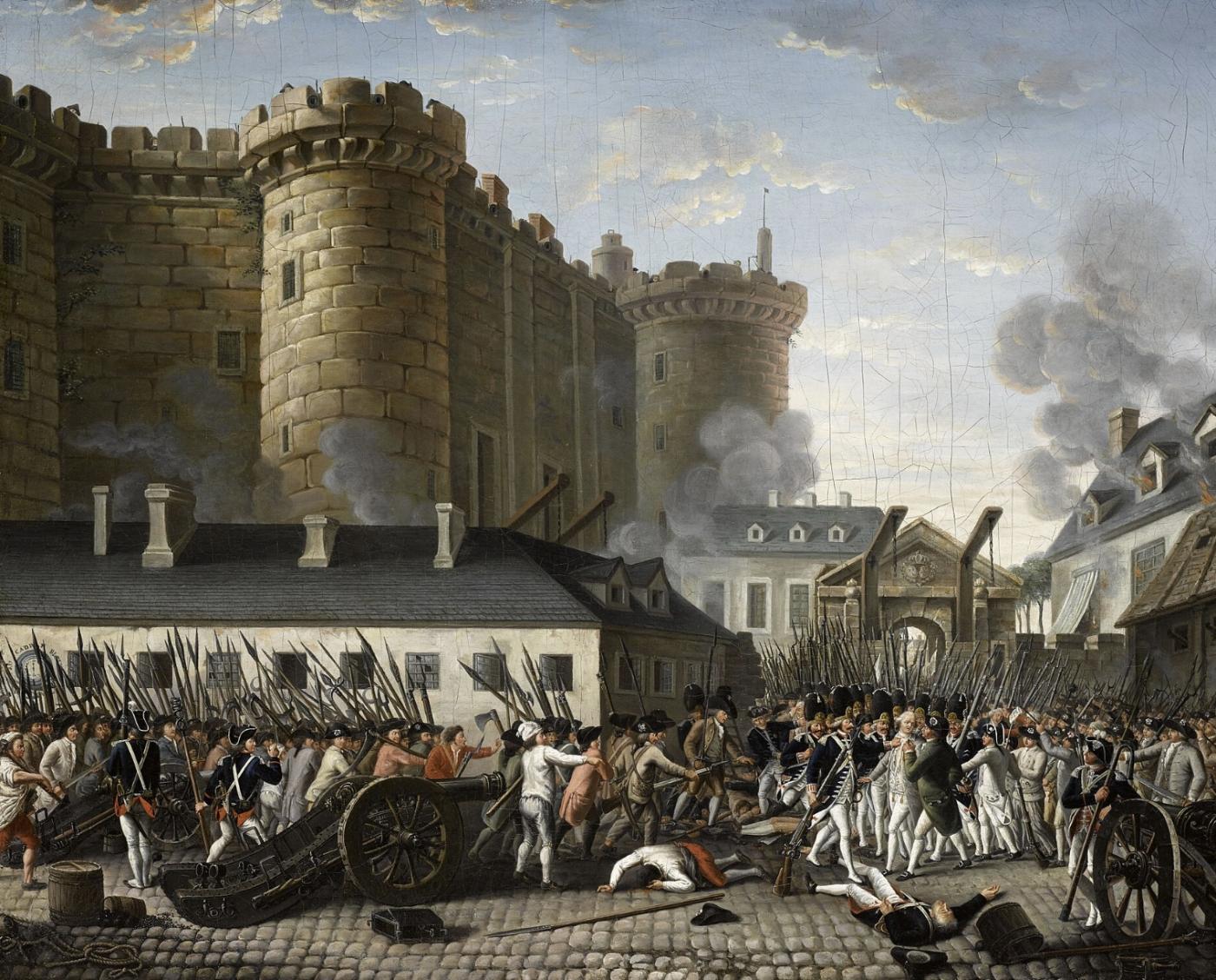
Bastille day
Bastille Day, celebrated each year on 14th July, is France’s national holiday marking the Storming of the Bastille in 1789. This historic event was a turning point in the French Revolution and is remembered as a symbol of the people’s resistance against absolute monarchy. At the time, France was in the grip of deep political and social unrest. King Louis XVI ruled a nation plagued by debt and inequality. French society was divided into three rigid classes, or "Estates." The First Estate consisted of the clergy, the Second Estate the nobility, and the Third Estate the commoners, who made up the vast majority of the population yet had little political representation or power.
The financial strain caused by royal extravagance and the costs of wars, including support for the American Revolution, pushed the French economy into crisis. In response to rising pressure, Louis XVI convened the Estates-General in 1789 for the first time in nearly two centuries. However, the meeting quickly revealed deep tensions. The Third Estate broke away and declared itself the National Assembly, demanding a constitution and more equal representation. The king attempted to resist these changes, but unrest and protest spread rapidly through Paris and the countryside. Rumors of an impending military crackdown triggered panic. Fearing a royal assault on the revolutionaries, Parisians began arming themselves.
On the morning of 14th July 1789, crowds of revolutionaries gathered in search of weapons. They seized muskets from the Hôtel des Invalides but needed gunpowder, which was stored at the Bastille, a large fortress and prison in the eastern part of Paris. Though only holding seven prisoners at the time, the Bastille stood as a powerful symbol of royal tyranny and arbitrary justice. The crowd demanded that the prison’s commander, Governor Bernard-René de Launay, surrender the weapons and gunpowder. Negotiations failed, and tensions escalated. By the afternoon, the crowd stormed the fortress. After hours of chaotic fighting, de Launay surrendered. He was captured and later killed by the mob, who paraded his head on a pike through the streets.
The fall of the Bastille was a defining moment in French history. Though not a large-scale military victory, it had immense symbolic power. It showed that ordinary citizens could rise against the monarchy and demand change. It marked the collapse of royal authority in Paris. In the days that followed, King Louis XVI reluctantly acknowledged the National Assembly and wore the revolutionary colors of blue, white, and red. The storming of the Bastille is now regarded as the beginning of the French Revolution, a period that would see the monarchy overthrown, radical reforms introduced, and France ultimately transformed into a republic. It also marked the first time that common citizens asserted themselves as a force capable of shaping the future of the nation.
Today, the 14th of July is celebrated throughout France as La Fête Nationale, or simply le 14 Juillet. It was officially declared a national holiday in 1880 during the French Third Republic, intended to reinforce the values of liberty, equality, and fraternity that arose from the Revolution. The most iconic event of the modern celebration is the military parade held on the Champs-Élysées in Paris. It is attended by the President of France and watched by millions. Soldiers from all branches of the military march in formation, while jets fly overhead trailing smoke in the colors of the French flag. It is a spectacular show of unity and national pride, and one of the oldest military parades in Europe.
Across the country, towns and cities host their own festivities. Fireworks displays light up the night sky, especially in Paris where the Eiffel Tower provides a dramatic backdrop. Many communities organize public dances, concerts, and communal meals. One particularly popular tradition is the "Bal des pompiers," or firemen’s ball, where local fire stations open their doors to the public for evening parties. These events are a way for people to come together, celebrate their shared identity, and reflect on the democratic values the day represents. French embassies around the world also host receptions to mark the occasion and celebrate with international communities.
Bastille Day is more than a commemoration of a single historical event. It is a tribute to the revolutionary spirit that shaped modern France. The memory of 14th July 1789 serves as a reminder of the importance of civic action, the fight for justice, and the belief in government by the people. While France has experienced many changes since the Revolution—including empires, restorations, wars, and republics—the ideals born in that moment of rebellion continue to influence its society, culture, and political system. The storming of the Bastille remains not just a moment in history, but a lasting symbol of the power of the people.










